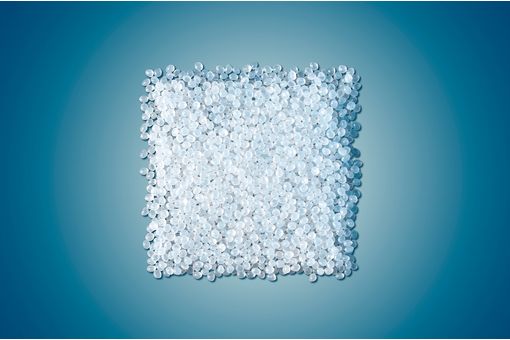Interviews
Applied DNA launches Pima, ELS Cotton Authentication Tests
25 Jun '08
3 min read
Applied DNA Sciences Inc, a provider of DNA-based security solutions, announced that it has successfully completed the feasibility study and received the final payment from Supima, the promotional organization of the American Pima cotton growers. The name "Supima" is a licensed trademark owned by Supima and its members, used to promote textile and apparel products made of 100% American Pima cotton.
The name "Supima" is an abbreviation for Superior Pima. Supima cotton is renowned for its superior fiber length, strength and natural luster. Because of the fineness of Supima cotton, more fibers can be spun into a yarn of a given count, which will enhance the feel and softness, drapeability and brilliance of color of a fabric. Supima products can be found at finer department and specialty stores nationwide.
Dr. Benjamin Liang, Chief Technology Officer of APDN stated, “We have been successful in developing a genetic assay to distinguish between Pima (including Supima) and Upland cotton in fiber and fabric. The proprietary, patent-pending methodologies are very specific and robust and similar to what has been used to track human lineage of archaeological remains. This test, being marketed as FiberTyping, can now be used to authenticate products for Supima, distinguishing Pima cotton from Upland cotton.”
“We believe that the genetic assays developed by APDN to detect Pima cotton DNA in fiber as well as fabric are remarkable discoveries which will help us provide a higher level of quality assurance and authentication to all participants in the value chain, from the cotton grower to the end consumer. We are committed to preserving the reputation of Supima cotton as the finest cotton in the world,” commented Jesse Curlee, President of Supima. “We believe that APDN's developments will alter the face of the global cotton industry and favorably affect the demand curve.”
Cotton classification and the authentication of cotton geographic origin are issues of global significance. As the world's largest consumer market, the United States is an attractive destination for products containing cotton. At the same time, domestic cotton and textiles are often exported to be processed by foreign apparel-makers.
When these garments are imported back into the United States for sale, some of those made from US cotton, are allowed to re-enter with favorable tariff treatment. FiberTyping, for the first time offers a means to determine the origin of the fibers and textiles in these finished goods which previously were impossible to trace.
“Supima is to be commended for its commitment to ensuring quality and authenticity through innovation,” commented James A. Hayward, President & CEO of APDN. “Along with FiberTyping, APDN has also developed a genetic assay known as PimaTyping, to differentiate between ELS cotton from different regions of the world. We believe that these assays will have important implications for U.S. cotton, both Pima and Upland, and for regulating international trade,” Dr. Hayward continued.
The name "Supima" is an abbreviation for Superior Pima. Supima cotton is renowned for its superior fiber length, strength and natural luster. Because of the fineness of Supima cotton, more fibers can be spun into a yarn of a given count, which will enhance the feel and softness, drapeability and brilliance of color of a fabric. Supima products can be found at finer department and specialty stores nationwide.
Dr. Benjamin Liang, Chief Technology Officer of APDN stated, “We have been successful in developing a genetic assay to distinguish between Pima (including Supima) and Upland cotton in fiber and fabric. The proprietary, patent-pending methodologies are very specific and robust and similar to what has been used to track human lineage of archaeological remains. This test, being marketed as FiberTyping, can now be used to authenticate products for Supima, distinguishing Pima cotton from Upland cotton.”
“We believe that the genetic assays developed by APDN to detect Pima cotton DNA in fiber as well as fabric are remarkable discoveries which will help us provide a higher level of quality assurance and authentication to all participants in the value chain, from the cotton grower to the end consumer. We are committed to preserving the reputation of Supima cotton as the finest cotton in the world,” commented Jesse Curlee, President of Supima. “We believe that APDN's developments will alter the face of the global cotton industry and favorably affect the demand curve.”
Cotton classification and the authentication of cotton geographic origin are issues of global significance. As the world's largest consumer market, the United States is an attractive destination for products containing cotton. At the same time, domestic cotton and textiles are often exported to be processed by foreign apparel-makers.
When these garments are imported back into the United States for sale, some of those made from US cotton, are allowed to re-enter with favorable tariff treatment. FiberTyping, for the first time offers a means to determine the origin of the fibers and textiles in these finished goods which previously were impossible to trace.
“Supima is to be commended for its commitment to ensuring quality and authenticity through innovation,” commented James A. Hayward, President & CEO of APDN. “Along with FiberTyping, APDN has also developed a genetic assay known as PimaTyping, to differentiate between ELS cotton from different regions of the world. We believe that these assays will have important implications for U.S. cotton, both Pima and Upland, and for regulating international trade,” Dr. Hayward continued.
Popular News
Leave your Comments
Editor’s Pick
Therese Premler-Andersson
Textile Machinery Association of Sweden (TMAS)
Pratik Gadia
The Yarn Bazaar - Filosha Infotech Private Limited
Christian Guinet
French Textile Equipment Manufacturers’ Association (UCMTF)
































-Ltd..jpg?tr=w-120,h-60,c-at_max,cm-pad_resize,bg-ffffff)





.jpg?tr=w-120,h-60,c-at_max,cm-pad_resize,bg-ffffff)
.jpg?tr=w-120,h-60,c-at_max,cm-pad_resize,bg-ffffff)






